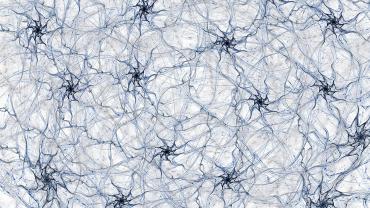
Research has well-established the link between the gastrointestinal microbiome and certain aspects of brain function, often referred to as the gut-brain axis. Exploration of the gut-brain axis may provide insight into certain disorders related to neurology and neuropsychology. A recently published review article by Socala and colleagues describes the latest research connecting certain neuropsychiatric pathologies and the gut microbiome.
The gut microbiome may affect neurological and brain function through many different pathways including neural, metabolic, neuroendocrine, and immune. Metabolites of microbes, such as short-chain fatty acids, may play an important role in many aspects of human health and the gut-brain axis. Microbes may also influence the synthesis or metabolism of neurotransmitters or even generate certain neuroactive substances.
Bifidobacterium and Lactobacillus have been shown to produce gamma-aminobutyric acid (GABA), and GABA is a neurotransmitter that may cross the blood-brain barrier (BBB). Other neurotransmitters produced in the gut may not pass through the BBB, but they may still act on the enteric nervous system.
The vagus nerve is an important communication route in the gut-brain axis. Some influences of certain gut microbiota and probiotics on brain function have been shown to be dependent on activation of the vagus nerve.
The immune system has also been shown to have a bidirectional influence on the gut-brain axis. For example, levels of interleukin (IL)-1 and IL-6 may be modulated indirectly by certain microbiota and probiotics. In the hypothalamus, IL-1 and IL-6 may then regulate the release of corticotropin-releasing hormone, a regulator of the hypothalamic-pituitary-adrenal axis.
The review by Socala and colleagues explored the potential impact of probiotics on several neuropsychiatric conditions, including depression and anxiety. One animal study reported a decrease in behavior related to depression in the presence of supplementation with Lactobacillus rhamonosus JB-1 for 28 days. Another animal study explored the effect of two new probiotic strains isolated from the fermentation of Theobroma cacao L. and found an attenuation of symptoms related to depression and anxiety in the presence of Lactobacillus plantarum 286. In addition, the seeds of Theobroma cacao L. are used to make chocolate.
In clinical studies, probiotics have also been shown to influence mood disorders, including anxiety and depression. One clinical study showed significant improvement in individual’s moods with the lowest depression scores in the presence of a strain of Lactobacillus casei. Another clinical trial assessed the efficacy of oral administration of Clostridium butyricum Miyairi 588. Study results showed an improvement in gut dysfunction, stimulation of hippocampal microglia, and levels of certain cytokines, including IL-1-beta, IL-6, and tumor necrosis factor-alpha. Another study indicated that supplementation with multiple strains may support the decrease of depressive symptoms more than with a single strain.
The intricacies of the gut-brain axis continue to be elucidated in modern research. The review by Socala and colleagues indicates strong connections between the gut microbiome and brain function. More research is needed to draw greater conclusions, but evidence does point to the supportive role of probiotics in brain health.
By Colleen Ambrose, ND, MAT